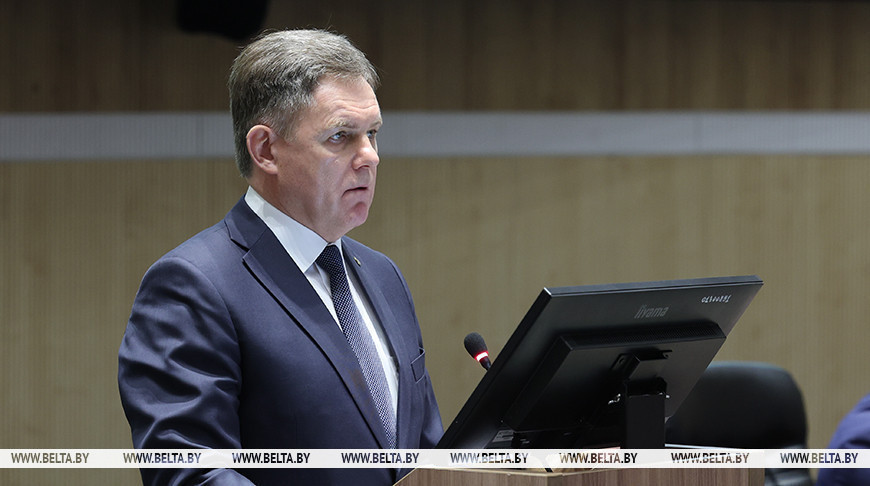
MINSK, 24 April (BelTA) - Belarus has made significant efforts to tackle radioactive pollution following the Chernobyl nuclear disaster, CIS First Deputy Secretary General Igor Petrishenko said during a meeting of the Sustainable Development Council, BelTA has learned.
The meeting, dedicated to the International Chernobyl Disaster Remembrance Day, was held at the Educational Center for Life Safety of Belarus’ Emergencies Ministry in Minsk.
"Next year will mark 40 years since that devastating accident. Yet this issue remains relevant for Belarus even today. The country's leadership has done a lot to combat radioactive pollution. It is important that the state made the right decisions and effectively implemented them in practice. Since the early 1990s, five national programs aimed at overcoming the consequences of the Chernobyl disaster have been developed and carried out, with nearly $20 billion allocated for their implementation. This year sees the completion of a sixth similar program amounting to almost Br3 billion," Igor Petrishenko stated. "Over the years, Belarus has acquired extensive experience and expertise in the use of nuclear technologies. The Belarusian Nuclear Power Plant in Ostrovets has been built and commissioned. Specialized bodies responsible for nuclear safety oversight, including licensing, inspections and monitoring, have been established. Thanks to a comprehensive set of measures, Belarus has largely managed to overcome the aftermath of the man-made disaster and begin the revival of the Chernobyl-affected areas."

"Statistics confirm stable positive trends in the social and economic development of all 47 regions of Belarus affected by the Chernobyl nuclear disaster. In 2024, the vast majority of these regions operate profitably and show growth in industrial and agricultural production. However, approximately 13% of the country's total territory remains contaminated, and nearly 250,000 hectares of land are still considered radiation-hazardous. These and other factors will undoubtedly be the focus of today's discussions, which aim to reassess the ongoing remediation efforts in Belarus’ regions affected by the Chernobyl disaster and their contribution to achieving Sustainable Development Goals," Igor Petrishenko remarked.





















